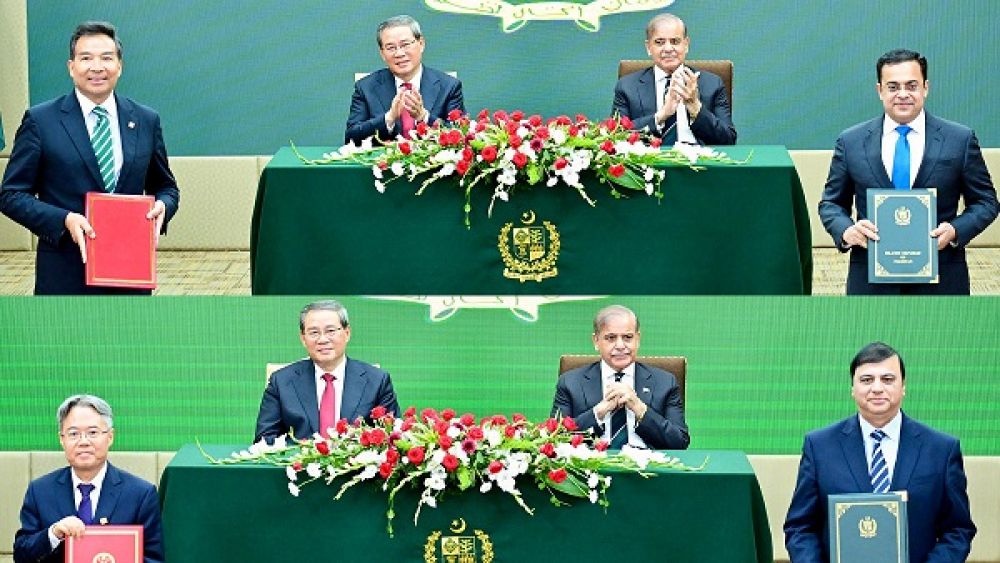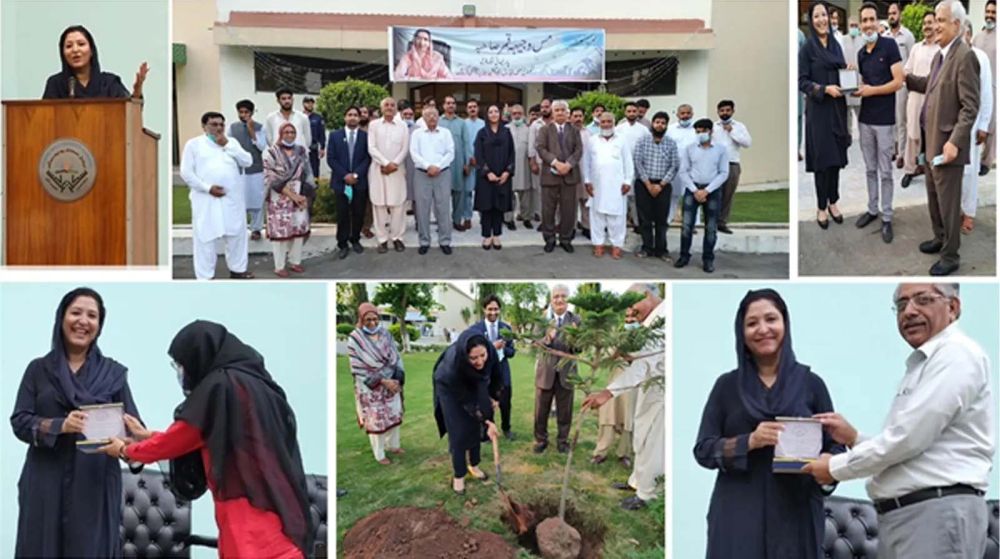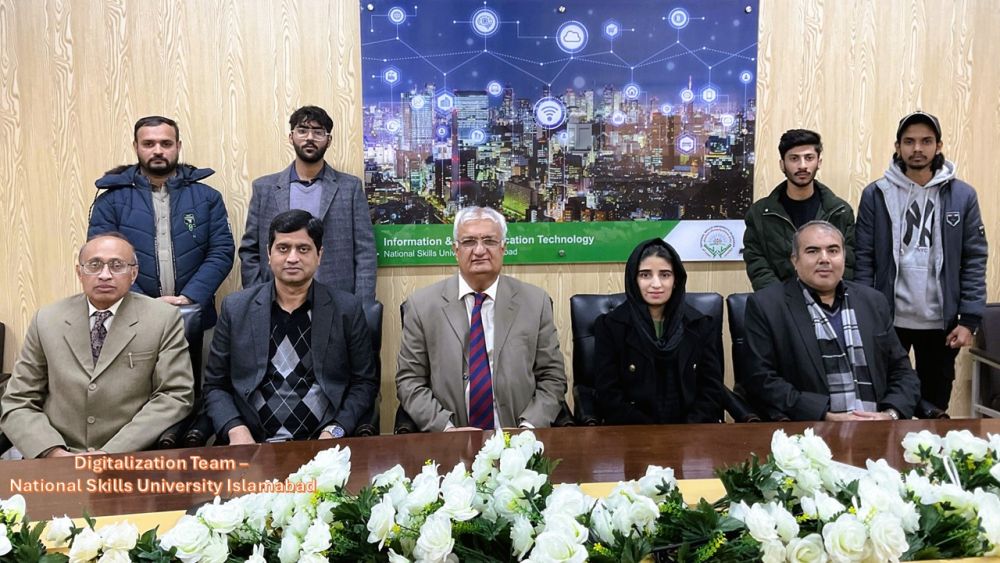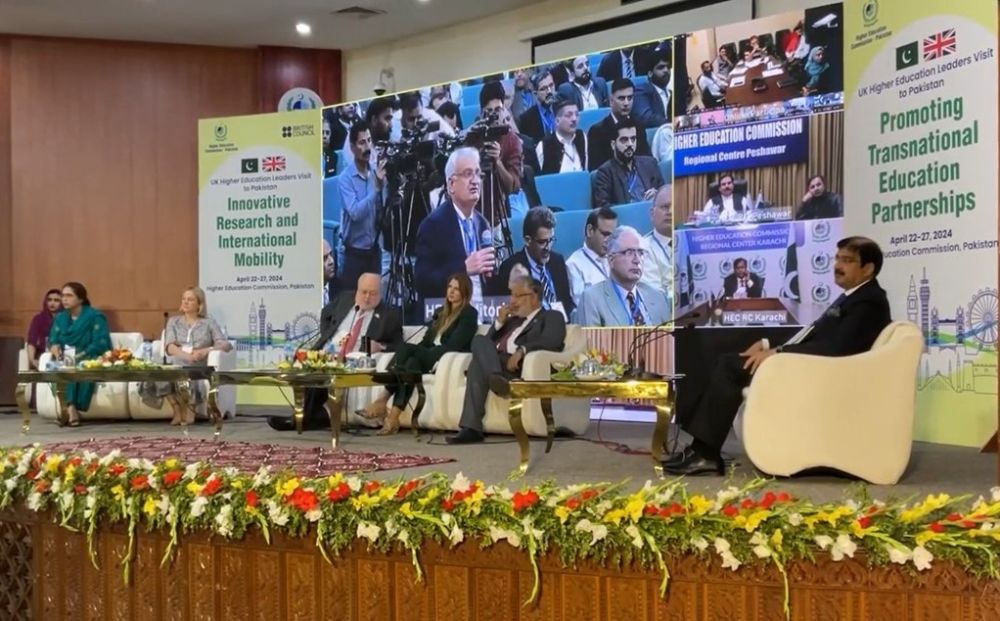Strengthening the Pakistan-China Partnership for a Shared Future - Prime Minister of Both Countries Witness MOUs Signing Ceremony
Posted 1 year ago
On October 14, 2024, China and Pakistan inked a series of accords in Islamabad, covering a broad spectrum of sectors, ranging from education and agriculture to security and science. The exchange of documents, witnessed by Prime Ministers of both countries, reflects the deepening cooperation between the two nations under the ambitious framework of the China-Pakistan Economic Corridor (CPEC). The Chinese Premier Li Qiang arrived in Pakistan a day before a heads-of-government gathering of the Shanghai Cooperation Organisation this week.
One of the most promising developments is the Smart Classrooms Project, a significant leap in educational technology, signed by Pakistan’s Economic Affairs Minister Ahad Khan Cheema and China’s Commerce Minister Wang Wentao. This project has the potential to transform learning environments in Pakistan, bridging the digital gap and bringing modern education to underserved areas. Meanwhile, Mr. Sajid Baloch, Secretary of Pakistan’s Ministry of Science and Technology, signed an agreement with Chinese ambassador in Pakistan Mr. Jiang Zaidong to establish joint laboratories, advancing innovation and fostering scientific collaboration. These agreements extend beyond infrastructure and technology.
A memorandum on co-producing television programs reflects a growing cultural collaboration. The currency swap agreement between the People’s Bank of China and the State Bank of Pakistan is a strong signal of commitment to economic integration, providing stability and predictability in financial transactions between the two economies.
These developments come at a crucial time as global geopolitics and economic uncertainties continue to evolve. Pakistan’s growing reliance on Chinese expertise, infrastructure investment, and trade links reflects a broader pivot towards a multi-dimensional partnership. For its part, China sees Pakistan as a gateway to South Asia, an essential partner in its Belt and Road Initiative, and a key player in regional stability. However, such deepening ties also come with challenges. While CPEC has brought much-needed investment into Pakistan, concerns about debt sustainability, sovereignty, and local job creation persist. Both governments must ensure that this relationship remains balanced, transparent, and beneficial for the people of Pakistan, particularly as the country grapples with its economic vulnerabilities.
Prof. Dr. Muhammad Mukhtar, Vice Chancellor of the National Skills University Islamabad recognizes these collaboration will be very furitful particularly, the Smart Classroom Project and much needed Science and Technology collaboration. The accords signed this week point to a future of shared progress and mutual benefit. However, it is crucial that we exercise careful stewardship to ensure this partnership leads to sustainable, inclusive growth. For now, the Pakistan-China relationship remains one of the most dynamic alliances in the region, with the potential to shape not only the economic fortunes of both nations but the strategic landscape of Asia itself.





